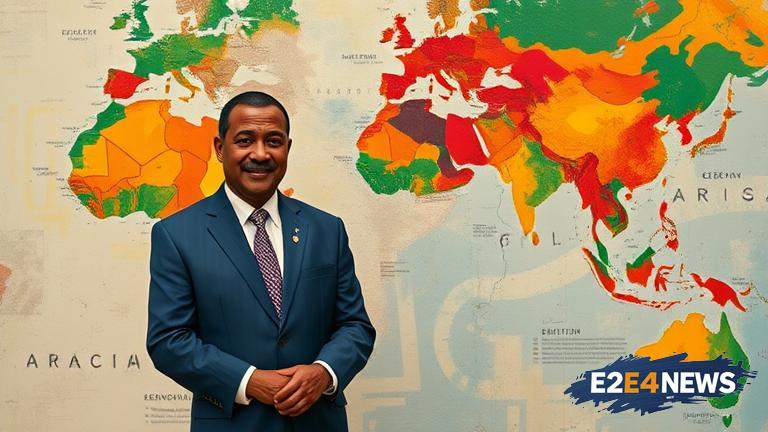The World Bank has announced its co-chairmanship of Africa’s Made Alliance, a groundbreaking initiative designed to promote regional trade and investment in Africa. This move is expected to have a significant impact on the continent’s economic development, as it seeks to unlock the vast potential of African markets. The alliance brings together key stakeholders, including governments, private sector entities, and civil society organizations, to work towards a common goal of increasing trade and investment within the region. By doing so, it aims to create new opportunities for economic growth, job creation, and poverty reduction. The World Bank’s co-chairmanship of the alliance is a testament to its commitment to supporting Africa’s economic development and integration. The bank has a long history of working with African countries to promote economic growth and reduce poverty, and this new initiative is a key part of its strategy. The Africa’s Made Alliance is expected to focus on several key areas, including trade facilitation, investment promotion, and regional integration. It will work to simplify trade procedures, reduce tariffs and other barriers to trade, and promote investment in key sectors such as infrastructure, agriculture, and manufacturing. The alliance will also provide a platform for African businesses to connect with each other and with international partners, helping to increase trade and investment flows within the region. In addition, it will work to promote regional integration, including the development of regional trade agreements and the creation of a single African market. The World Bank’s co-chairmanship of the alliance is also expected to help leverage funding and technical assistance from other development partners, including the African Development Bank, the European Union, and the United Nations. This will help to ensure that the alliance has the resources it needs to achieve its goals and make a meaningful impact on the continent. The launch of the Africa’s Made Alliance is a significant development for Africa, as it has the potential to unlock the continent’s vast economic potential and promote sustainable economic growth. It is also a key part of the World Bank’s strategy to support Africa’s economic development and integration, and is expected to have a major impact on the continent’s economic future. The alliance is expected to work closely with other regional initiatives, including the African Continental Free Trade Area (AfCFTA), to promote regional trade and investment. The AfCFTA is a key part of the African Union’s Agenda 2063, which aims to create a single African market and promote economic integration across the continent. The World Bank’s co-chairmanship of the Africa’s Made Alliance is a major boost to these efforts, and is expected to help drive economic growth and development across the region. In conclusion, the World Bank’s co-chairmanship of Africa’s Made Alliance is a significant development for Africa, with the potential to unlock the continent’s vast economic potential and promote sustainable economic growth. The alliance is expected to work closely with other regional initiatives to promote regional trade and investment, and to leverage funding and technical assistance from other development partners. With its focus on trade facilitation, investment promotion, and regional integration, the alliance is well-placed to make a meaningful impact on the continent’s economic future. The World Bank’s commitment to supporting Africa’s economic development and integration is clear, and its co-chairmanship of the alliance is a major step forward in this effort. As the alliance moves forward, it is expected to face several challenges, including the need to simplify trade procedures, reduce tariffs and other barriers to trade, and promote investment in key sectors. However, with the support of the World Bank and other development partners, it is well-placed to overcome these challenges and achieve its goals. The launch of the Africa’s Made Alliance is a significant development for Africa, and is expected to have a major impact on the continent’s economic future. It is a key part of the World Bank’s strategy to support Africa’s economic development and integration, and is expected to help drive economic growth and development across the region. The alliance is expected to work closely with other regional initiatives to promote regional trade and investment, and to leverage funding and technical assistance from other development partners. With its focus on trade facilitation, investment promotion, and regional integration, the alliance is well-placed to make a meaningful impact on the continent’s economic future.





